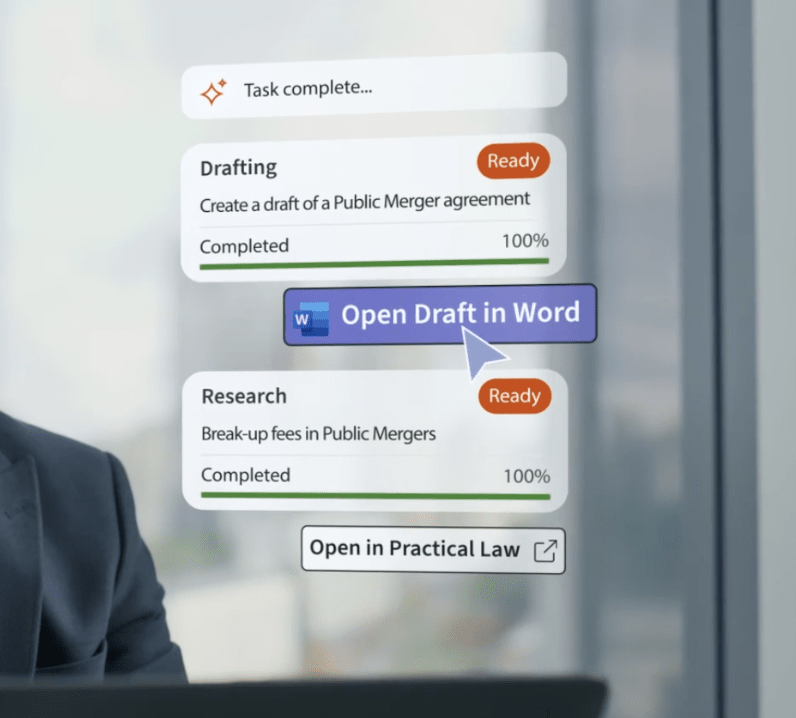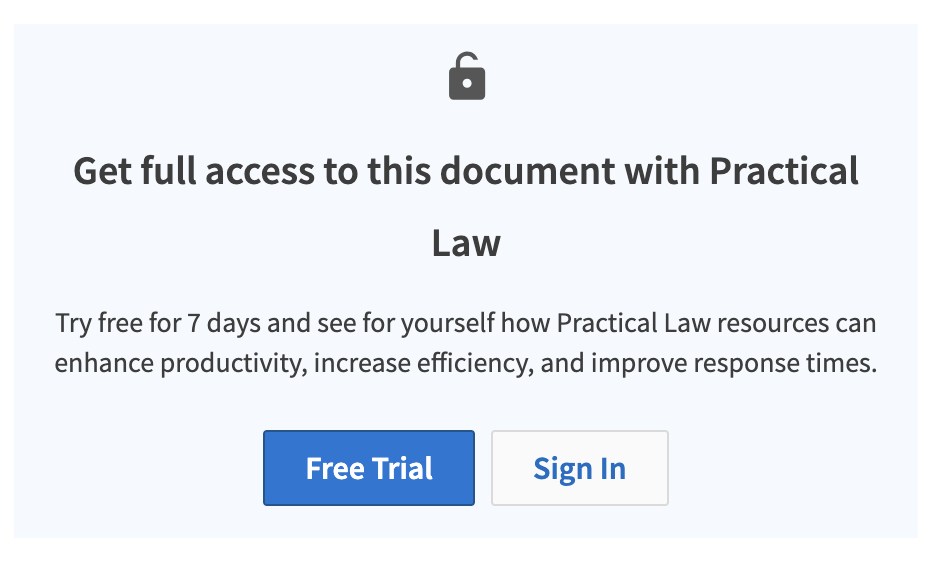Definition, overview, clause samples and more resources for lawyers
Legal terms • contract • force majeure
force majeure (fors ma-zhər) [Law French “a superior force”] (1883) An event or effect that can be neither anticipated nor controlled; esp., an unexpected event that prevents someone from doing or completing something that he or she had agreed or officially planned to do.
• The term includes both acts of nature (e.g., floods and hurricanes) and acts of people (e.g., riots, strikes, and wars). — Also termed force majesture; vis major; superior force. Cf. act of god; vis major (1).
Source: Black’s Law Dictionary 12th ed. 2024
A force-majeure clause is contractual provision allocating the risk of loss if performance becomes impossible or impracticable, esp. as a result of an event or effect that the parties could not have anticipated or controlled.
This concept in contract law allows the party to escape their duties when something beyond their control happens, such as a natural disaster or a government shutdown. The concept of force majeure is not mentioned in federal law. Instead, it is based on common law, which the courts interpret depending on the language of the contract and the legal jurisdiction.
Jump to ↓
| Legal interpretation |
| Key elements |
| What happens when a force majeure is absent? |
Sample clauses and other resources

CoCounsel Legal
AI, trusted content, and expert insights from Westlaw and Practical Law resources
Jumpstart legal research ↗What is the legal interpretation of force majeure?
Force majeure clauses are interpreted strictly; this means the clause must specifically list in the agreement or contract the events considered force majeure, like natural disasters, wars, or pandemics. In Kel Kim Corp. v. Central Markets, Inc.(131 A.D.2d 947 (N.Y. App. Div. 1987), the New York Court of Appeals decided that force majeure clauses must be interpreted narrowly and only cover events explicitly mentioned in the contract.
An important aspect to note is that the event must also be unexpected, unavoidable, and out of the control of the parties involved, and the onus to prove that the event fits these criteria is the party claiming it ( Bd. of Supervisors v. McMahon, 219 Cal. App. 3d 286, 300, 268 Cal. Rptr. 219, 226 (Ct. App. 1990).
The Uniform Commercial Code in the United States applies to the force majeure clause as per Section 2-615, wherein it is stipulated that a seller may be excused from delivering goods on time if a sudden and unforeseen event makes it impossible to perform.
What are the key elements of force majeure clauses?
Force majeure clauses typically contain the following parts:
- A list of force majeure events, and language excusing one or both parties from performance if any of those events occur.
- The impacted party’s obligations if a force majeure event occurs, such as notifying the other party and a duty to mitigate damages.
- The non-impacted party’s remedies, such as termination rights triggered by the duration of the force majeure event.
Definition of force majeure events
In the force majeure clause of the agreement or contract, the definition of the clause is provided, which enlists all the specific events that will be considered as force majeure. As mentioned above, the events have to be unforeseen and beyond the control of the parties. Common examples include natural disasters such as earthquakes, floods, or hurricanes, acts of terrorism, strikes, government actions like new laws or orders, and other significant disruptions.
The list of these specific events may vary depending on the contract. Still, the key is that these events are unexpected, which makes it impossible to carry out the contract as originally planned. In Seaboard Lumber Co. v. United States (41 Fed. Cl. 401), the U.S. Court of Federal Claims ruled that a force majeure clause did not excuse performance because the economic downturn was not unforeseeable.
Obligations of the parties
In the event of a force majeure, the contract usually stipulates what actions are to be taken. One of the most common requirements is that the party affected by the event must inform the other party as soon as possible via a “notice,” often called a “Force Majeure Notice.”
The contract also specifies the time frame within which the formal notice of the force majeure is given by the party claiming it to the other one; it helps ensure that both parties are aware of the situation and can begin to address how it will affect their contractual relationship.
Effect on performance
Force majeure will impact performance and might be dealt with in the following ways:
- Delay — Due to the unforeseen event, the obligations may be performed but at a delayed stage. It will be expected to resume as soon as the event passes.
- Suspension — Similarly, the contract might allow for suspension of the activity for some time. However the difference is that it could apply to a longer or indefinite period depending on the nature of the event.
- Termination — In cases where the force majeure event is severe and long-lasting, the contract may allow for its termination, meaning the parties are released from their obligations entirely because the event has made it impossible or impractical to continue with the contract.
What happens when a force majeure is absent?
When a force majeure clause is absent from a contract, or if such a clause fails to cover a specific event, parties must look to other legal doctrines to excuse their inability to perform contractual obligations. In the United States, force majeure is not automatically assumed by law, so it’s essential to understand alternative defenses like impracticability, prevention by governmental regulation, and frustration of purpose
Impracticability
The defense of impracticability is used when an unexpected event makes it nearly impossible for a party to fulfill their contractual obligations. According to the Restatement (Second) of Contracts § 261, this defense applies if the occurrence or non-occurrence of an event was a basic assumption on which the contract was formed. Courts often require that the event be unforeseeable and beyond the control of the affected party. For instance, during the COVID-19 pandemic, if a government order required all gyms to close, a gym could use the impracticability defense under Restatement § 264, which covers situations where government regulations prevent performance.
Frustration of Purpose
The frustration of purpose doctrine is applied when an unforeseen event undermines the very essence of the contract’s existence. Under Restatement (Second) of Contracts § 265, the frustration must be so significant that it effectively destroys the value of the contract for one of the parties
Sample clause language and more resources
Force majeure clause is vital in contracts as it protects a party from liability if unforeseen events are beyond their control; it ensures that a party honestly suffering due to such events isn’t penalized for non-performance.
However, the clause must be clearly defined and used appropriately, specifying what constitutes a Force Majeure event to avoid misuse. This ensures fairness and clarity, allowing both parties to understand their rights and responsibilities when unexpected situations arise.
Toolkits
Do you need resources to assist counsel in addressing the risk of force majeure events when drafting commercial agreements? The Toolkit below offers a collection of numerous continuously maintained resources designed to help counsel understand a variety of issues related to force majeure.
Practice notes
Explore Practice Notes for in-depth guides. For example, you might need a thorough overview of how commercial contracts use force majeure clauses to deal with circumstances beyond the control of the parties, such as hurricanes, earthquakes, and other natural disasters and epidemics, pandemics, quarantines, terrorism, government acts, embargos, labor strikes and lock-outs, and acts of God.
Or, you can try further exploring contractual defenses to performance and other options that may be available when a commercial contract does not have a force majeure clause. These options include confirming whether a condition precedent in the agreement has not been met, re-negotiating and amending the agreement’s terms, finding alternate ways to meet contract obligations, and evaluating whether the circumstances support an impracticability, impossibility, or frustration of purpose excuse for non-performance.
You can get access to practice note that surveys the force majeure law in selected states, focusing on key issues to consider when deciding whether to invoke a force majeure clause, including whether courts recognize and enforce contractual notice requirements and how courts interpret catch-all language.
Jurisdictional Practice Notes are also available discussing force majeure clauses under state law.
- Contractual Defenses to Performance Without a Force Majeure Clause ↗
- Force Majeure Clauses: Key Issues in Selected Commercial Transactions ↗
- Key Issues When Invoking a Force Majeure Clause: State Law Chart ↗
- Force Majeure Clauses: Key Issues (CA) ↗
- Force Majeure Clauses: Key Issues (FL) ↗
- Force Majeure Clauses: Key Issues (GA) ↗
- Force Majeure Clauses: Key Issues (IL) ↗
- Force Majeure Clauses: Key Issues (MA) ↗
- Force Majeure Clauses: Key Issues (MN) ↗
- Force Majeure Clauses: Key Issues (NJ) ↗
- Force Majeure Clauses: Key Issues (NY) ↗
- Force Majeure Clauses: Key Issues (OH) ↗
- Force Majeure Clauses: Key Issues (TX) ↗
Standard Documents
- Notice of Force Majeure ↗
- Notice of Force Majeure Termination of Contract (by Obligee) ↗
- See all Practical Law Standard Documents ↗
Standard Clauses
- Force Majeure Clause (Commercial Real Estate) ↗
- General Contract Clauses: Force Majeure ↗
- Oil & Gas Contracts: Force Majeure Clause ↗
Related terms

Practical Law
Get expert how-to guidance, clear explanations of current law, and time-saving tools and templates to give you a better starting point
View all plans ↗







